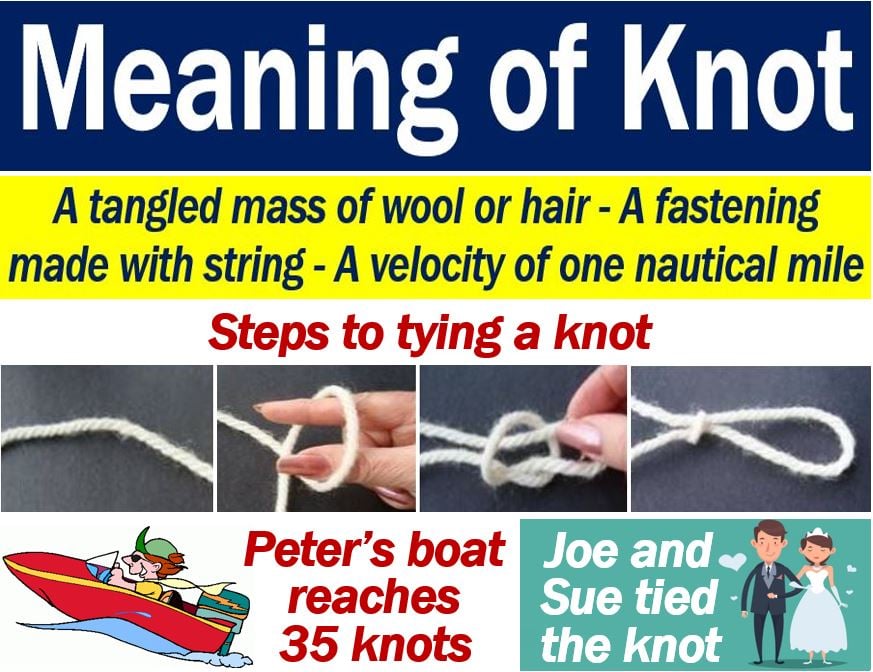Knot – definition and meaning
The noun ‘knot‘ means a tangled mass of, for example, wool or hair or a fastening somebody made with string. It also refers to a velocity of one nautical mile. One nautical mile equals 6,076.11 feet, 1.15 miles, or 1.85 kilometers. Therefore, a speed of one knot is 1.15 mph or 1.85 km/h.
As a verb, it means to fasten a piece of string or rope. It also means to tangle something, such as hair or wool.
The Oxford Living Dictionaries has the following meanings for the term:
“1. A fastening made by looping a piece of string, rope, or something similar on itself and tightening it. 2. A particular method of making knots.”
“3. An ornamental ribbon. 4. A tangled mass of something such as hair or wool.”
Knot has many meanings
We also use the word in other situations with different meanings:
– If I say “the matter is full of legal knots,” I mean it is full of legal problems.
– The phrase “John and Mary tied the knot” means they got married.

– If you have an unpleasant feeling in your stomach, you might say “My stomach is all in knots.” We use the term with this meaning to express anxiety, fear, or nervousness.
– In medicine, it can mean a lump or swelling. Doctors may, for example, detect knots around patients’ glands.
– Some planks of wood have imperfections. They are darker than the rest of wood. We call them knots. They are the result of a dead branch falling off the tree.
According to the Dictionary of Construction, a knot cluster is: “A compact grouping of two or more knots surrounded by deflected wood fibers or contorted grain.”
– If I say “A knot of onlookers was gathering,” I mean “A group of onlookers was gathering.”
Etymology of knot
We call the study of the origin of words ‘etymology.’ Etymology is also the study of how the meanings of words have evolved.
The Old English word Cnotta meant ‘intertwining of cords, ropes, etc.’ It came from Proto-Germanic Knuttan, Dutch Knot, and Old High German Knoto. Etymologists believe it may also have come from Old Norse Knutr.
In thirteenth-century Britain, the word acquired the meaning of the symbolic bond of wedlock.
In the 1630s, knots became a measure of the speed for ships.
Why do tight shoelaces always eventually get loose? They become untied due to an ‘invisible hand’ that loosens the knots and tugs on the laces’ free ends? In fact, the invisible hand is a double whammy of stomping and whipping forces.

